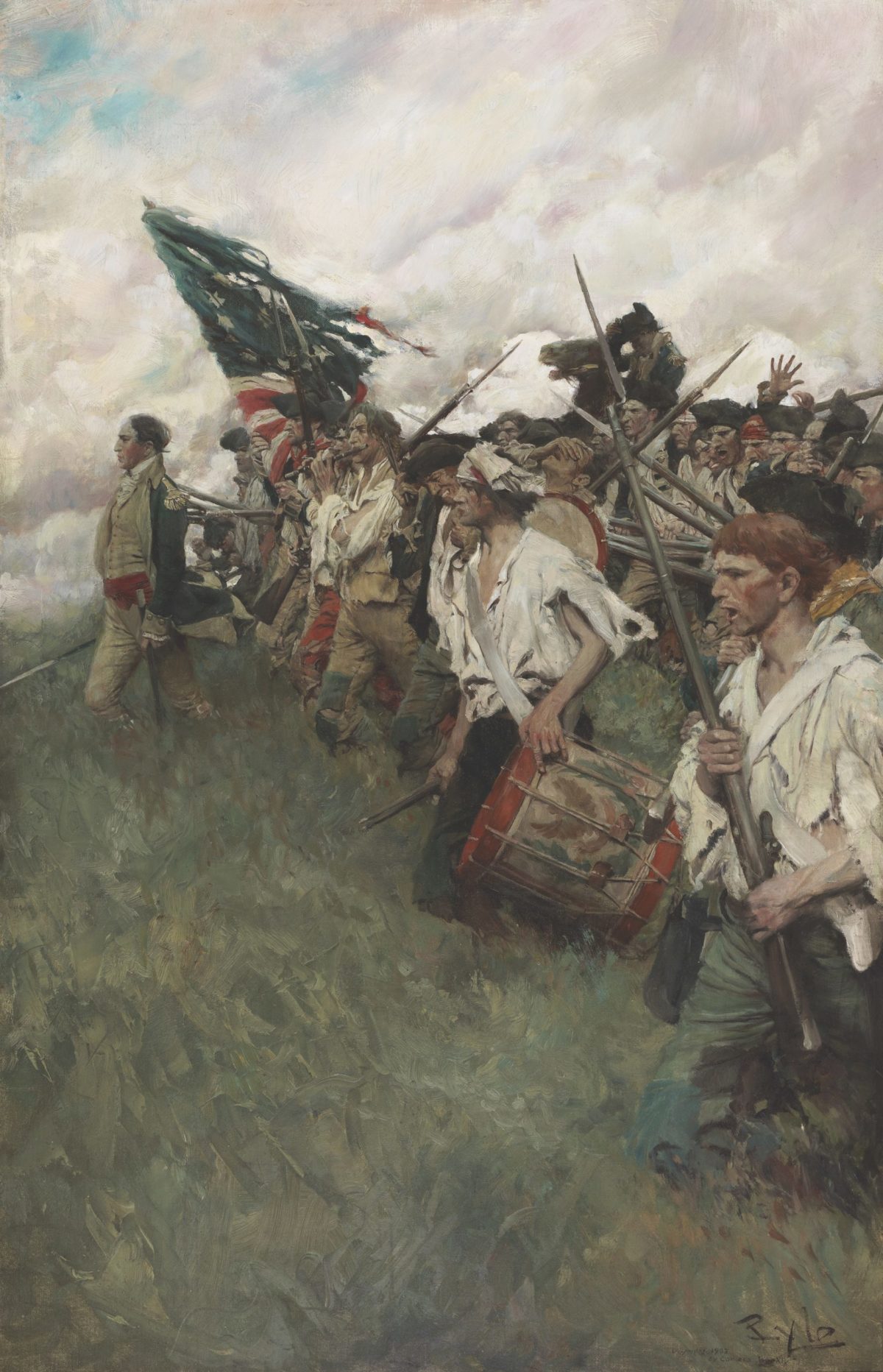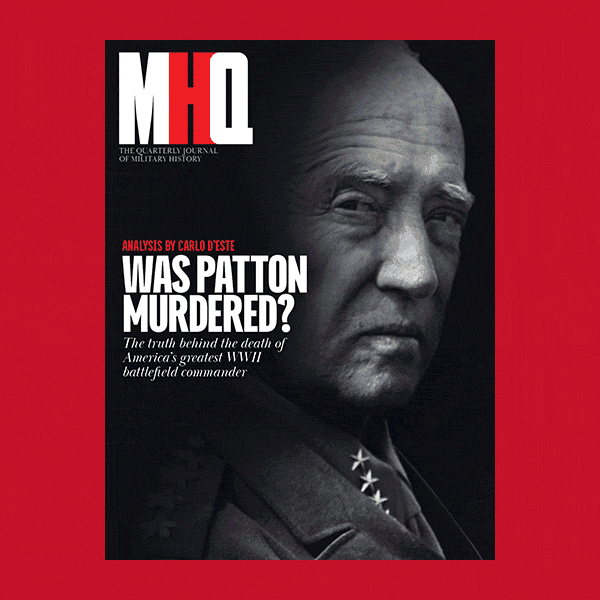If it hadn’t been for guns and ammunition purchased through clandestine channels in Europe and the West Indies, the American Revolution would have failed. As early as October 1774, in reaction to the Boston Tea Party, Britain banned the importation of weapons to the American colonies. A brisk contraband trade immediately sprang up, centered on the Dutch-controlled island of St. Eustatius in the Caribbean. General Thomas Gage, the commander in chief of British forces in North America, warned the prime minister, Lord North, that the colonists, in addition, were “sending to Europe for all kinds of Military Stores.”
In New England, an independence movement had gradually won sympathy, especially among merchants who had been buffeted for a decade by ever-harsher British trade restrictions and taxes. Men who had for decades built legitimate commercial networks doing business all over the world now became arms merchants, channeling their expertise into what the British condemned as smuggling.
In 1774, after Parliament closed the port of Boston in retaliation for the Tea Party, Connecticut’s General Assembly commissioned two new independent companies of militia, each recruited, outfitted, and bankrolled by wealthy ship owners. Jonathan Trumbull, the royal governor and a leading importer, had greater allegiance to his business than to the king who had appointed him: He anonymously drafted resolutions ordering all towns to double their arsenals of powder, balls, and flint. Connecticut also mustered six new regiments of militia, more than 6,000 men in a colony of 100,000 citizens. The colony’s assembly, dominated by merchants, dispatched fast ships to the Caribbean to buy weapons and gunpowder and ordered all militia to train for 12 days, double the normal term of service, paying them six shillings a day, twice the wages of a skilled artisan.
In the spring of 1775, when he returned from London after a decade as lobbyist for Pennsylvania, Benjamin Franklin was appointed a delegate to the Second Continental Congress and chairman of Pennsylvania’s Committee of Safety. Franklin wrote to a friend in Britain’s Parliament of finding “the commencement of a civil war with all ranks of people in arms, disciplining themselves morning and evening.” Twice in earlier colonial wars with France, Franklin had armed and organized the defense of the Quaker colony against France and its allies. Franklin well knew that no cannons were produced in Pennsylvania. He immediately opened secret negotiations with British, Dutch, and French merchants for shipments of munitions through their colonies in the Caribbean.
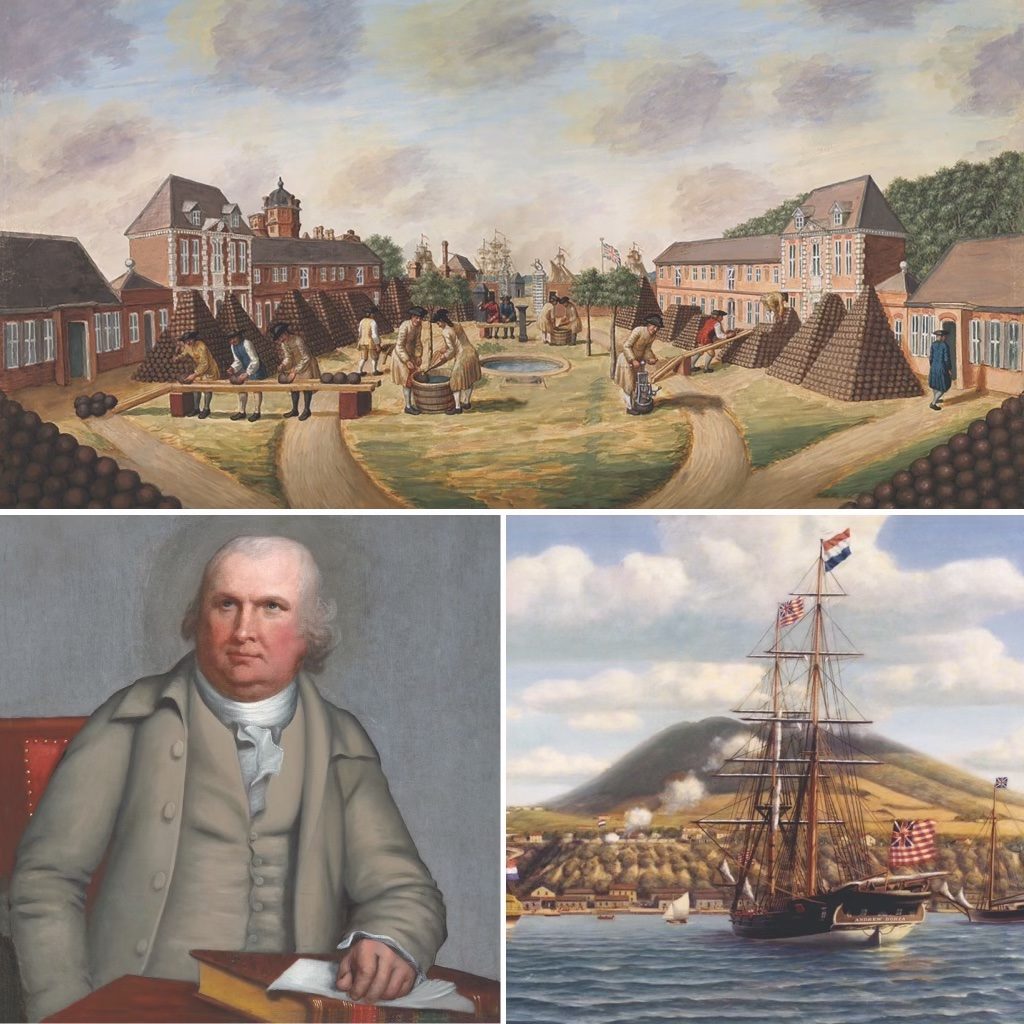
Though the governments of Europe’s monarchies avoided direct complicity with the rebellious Americans, they seldom interfered with entrepreneurs involved in contraband trade. Dutch arms makers were operating their mills at full capacity for the clandestine American market. In the summer of 1775, Maryland’s Convention dispatched commercial agents to Guadaloupe in the Caribbean to transship arms purchased in Europe by small vessels.
In July 1775, a year before the vote on independence, the Second Continental Congress, in clear defiance of the British, resolved that any ship transporting munitions for “the continent” could load and export to France any produce—mostly tobacco—in exchange for credits to pay for the weapons. Two weeks later, it appropriated $50,000 (approximately $1.3 million in 2021 dollars) for selected merchants to buy gunpowder for the Continental Army—at a 5 percent commission.
Two months later, in September 1775, Congress created the Committee of Secret Correspondence, empowering its members—merchants John Alsop and Philip Livingston of New York City and Thomas Willing and Robert Morris of Philadelphia—to draw on the Continental treasury to buy a million rounds of gunpowder, 10,000 muskets, and 40 field pieces. Congress would gradually put Morris in charge of the business side of the war. At first, he capitalized on Willing and Morris’s vast commercial network of contacts in virtually every British colony and in much of Europe. Morris’s activities were only known to a small inner circle of merchants, financiers, and members of Congress, though in time he would become known publicly as “the financier of the Revolution.” Morris defended his secret dealings in a letter to Connecticut merchant and Congressman Silas Deane: “It seems to me the opportunity of improving our fortunes ought not to be lost, especially as the very means of doing it will contribute to the service of our country at the same time.”
Within days, Congress also created the Secret Committee on Trade. Samuel Ward of Rhode Island, a merchant, chaired the committee. Alsop, Livingston, and Francis Lewis of New York joined Deane, Morris, and Franklin in the committee’s secret proceedings. Augmenting his and Willing’s network, Morris chose 24-year-old William Bingham as the committee’s principal agent in the Caribbean. Bingham, the son of a prominent Philadelphia merchant, owned several ships. Assigned to sail to Martinique, he was to pose as a private merchant while cultivating diplomatic connections with the French government and to buy 10,000 muskets for the Secret Committee on Trade. He was also to purchase a shipload of gunpowder under a private contract between Willing and Morris and the colony of Virginia and, in addition, to purchase a shipment of linens and other French finery on Morris’s private account. Morris warned Bingham that the risk of capture of these ships was high but so was the likelihood of great profit: “One arrival will pay for 2 or 3 or 4 losses.”
With a British naval blockade tightening, Morris envisioned a commercial windfall. “The scarcity of goods all over this continent affords a fine opportunity to private adventurers,” he wrote to an acquaintance in France. Foreseeing handsome profits for hard-to-get everyday necessities, he ordered “woolens, linens, pins, needles, etc. suited for the consumption of this country.”
By January 1776, Morris had emerged as America’s leading capitalist when the Secret Committee on Trade issued its largest contracts, requisitioning $300,000 (roughly $9 million today) in funds to buy arms, gunpowder, and cloth for uniforms, tents, and sails. While the order was divided among eight contractors, Morris’s firm received fully half. When Samuel Ward died, Congress voted unanimously to appoint Morris chairman of the Secret Committee on Trade. Asked his opinion of Morris, John Adams, a delegate to Congress from Massachusetts, confided, “He has vast designs in the mercantile way and no doubt pursues mercantile ends which are always gain, but he is an excellent member of our body.”

As its Treasury began to dry up, Congress voted to allow trade with Caribbean islands. Soon, cod, lumber, tobacco, indigo, and other goods were being exchanged for arms and ammunition, and agents commissioned by Congress began to order and funnel supplies from Europe and the West Indies to the Continental Army.By December 1775, a deputation from a leading shipping firm in Nantes, France, arrived at the headquarters of George Washington, in command of the Continental Army in Cambridge, Massachusetts, to make arrangements to covertly supply his army with war matériel.
Americans shipped tobacco to England; British manufactured goods found their way to New England from Canada, via Nova Scotia. A loyalist merchant complained to British vice admiral Molyneux Schuldham that most American ports east of Boston received “daily arrivals from the West Indies, but most from Saint Eustatius; everyone brings more or less gunpowder.”
Abraham Van Bibber, Maryland’s agent in the Dutch free port, reported that while the Dutch government had imposed an embargo on selling arms and ammunition to the Americans to mollify the British, “the Dutch understand quite well that the enforcement of the laws, that is, the embargo, would mean the ruin of their trade.” Statia, as St. Eustatius became known, was the first foreign port to salute the American flag. No wonder: Dutch merchants on the island were selling gunpowder to the Americans at six times the going rate in Europe.
“Our want of powder is inconceivable,” Washington complained in December 1775.
By mid-1776, arms, ammunition, cloth, and quinine were flowing through Louisiana into the Carolinas. Gunpowder smuggled in sugar hogsheads arrived in Charleston from Jamaica; from Bordeaux, 300 casks of powder and 5,000 muskets sailed for Philadelphia—on ships flying French colors—to be hauled overland to Boston. One wagon train was led by Benjamin Franklin himself.
Rejecting a petition from the largely mercantile City of London asking the king to define the terms of a just and honorable peace before unleashing the full force of British arms against the colonists, George III in his annual Speech from the Throne opening Parliament in October 1775 said he regretted the miseries his subjects had “brought upon themselves by an unjustifiable resistance to the constitutional authority of this Kingdom.” Until royal authority could be reestablished and the “now existing rebellion is at an end,” he added, “there would be no peace.”
For conservatives like wealthy Philadelphia merchant Robert Morris, who had been putting off a decision about independence, the king’s response “totally destroyed all hopes of reconciliation,” making “a declaration of Independency” all but inevitable.
But even as Thomas Paine was calling for a war of independence in his bestselling pamphlet Common Sense, Washington remained gloomy about the prospect of equipping an army “without any money in our treasury, powder in our magazines, arms in our stores…and by and by, when we shall be called upon to take the field, shall not have a tent to lie in.”
As the colonies girded for war, they could only find weapons in gun shops, trading houses, and private homes—muskets, rifles, fowling pieces, pistols, blunderbusses, and so forth. Some volunteers had no firearms at all—just pikes or swords. The few iron forges that existed were in remote reaches of the colonies. In the Pine Barrens of New Jersey, bog iron was turned into cannonballs; in Salisbury, Connecticut, a forge founded by Ethan Allen to produce iron cauldrons for boiling potash was converted to produce cannons.
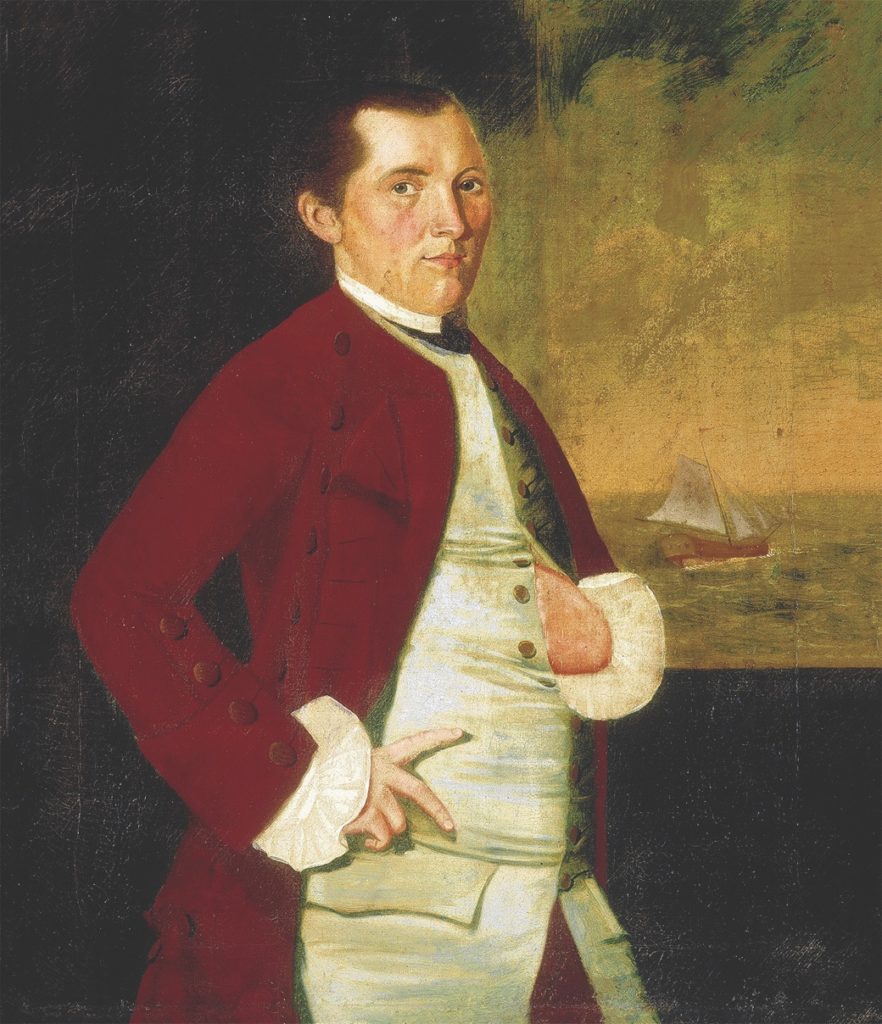
Connecticut also set up a small musket factory at Waterbury; Pennsylvania expanded its weapons industry, centered in Lancaster County and drawing on iron mines and foundries in Carlisle, Reading, and Warwick. More commonly, gunsmiths worked alone or with one or two apprentices to make highly individualistic weapons. They could manufacture, on average, only one gun a day. The U.S.-made gun cost $12; a French musket, $6. At one point, Washington even considered sending hundreds of unarmed militiamen home before Congress decided to confiscate weapons from loyalists.
In his memoirs, Major General William Moultrie of South Carolina remembered with awe that the colonists dared resist British might “without money, without arms, without ammunition, no general, no armies, no admirals and no fleets.”The residents of Charleston lacked weapons and ammunition until they broke into royal magazines and took some 1,000 muskets and then seized a British brig carrying 23,000 pounds of gunpowder. “The want of powder was a very serious consideration with us,” Moultrie wrote. “We knew there was none to be had upon the continent of America.” Indeed, there were no powder mills operating in the American colonies when the war started. Most, perhaps even all, of the gunpowder in colonial powder magazines had been stored, untested, for the dozen years since the French and Indian War, which had ended in 1763.
“Our want of powder is inconceivable,” Washington wrote on Christmas Day, 1775. At one point, no man on the 13-mile-long cordon of colonial troops around Boston had even an ounce of gunpowder.
In Pennsylvania, Franklin advertised for weapons in the newspapers. The few cannons available in New York City lined the parapets of Fort George on the Battery until students at King’s College (now Columbia University), led by 20-year-old Alexander Hamilton, dragged them away under fire from the British man-of-war Asia to arm the first artillery company of the Continental Army.
As Congress debated independence in the spring of 1776, Silas Deane, a member of its Secret Committee on Trade, was sailing to France, posing as a Bermudian merchant. Congress’s leading commercial agent, Deane, the Yale-educated son of a blacksmith, had amassed wealth through two marriages. Serving in the First Continental Congress, he had been defeated for reelection but decided to stay in Philadelphia to continue working with Morris and the trade committee. In May 1776, Morris supported Deane’s appointment by Congress to act as its commercial and diplomatic agent—America’s first diplomat—and, as historian John Ferling puts it, “to explore the depth of France’s friendship for the American cause.”
Franklin and Morris provided Deane with lists of French contacts who could arrange access to Charles Gravier, comte de Vergennes, the French foreign minister. Deane ostensibly was to discuss commercial ties with France, but his top priority was to procure uniforms for an army of 25,000 men and, according to his congressional commission, “quantities of arms and ammunition,” including 100 cannons. In addition, he agreed to act as Morris’s commercial agent at the customary 5 percent commission.
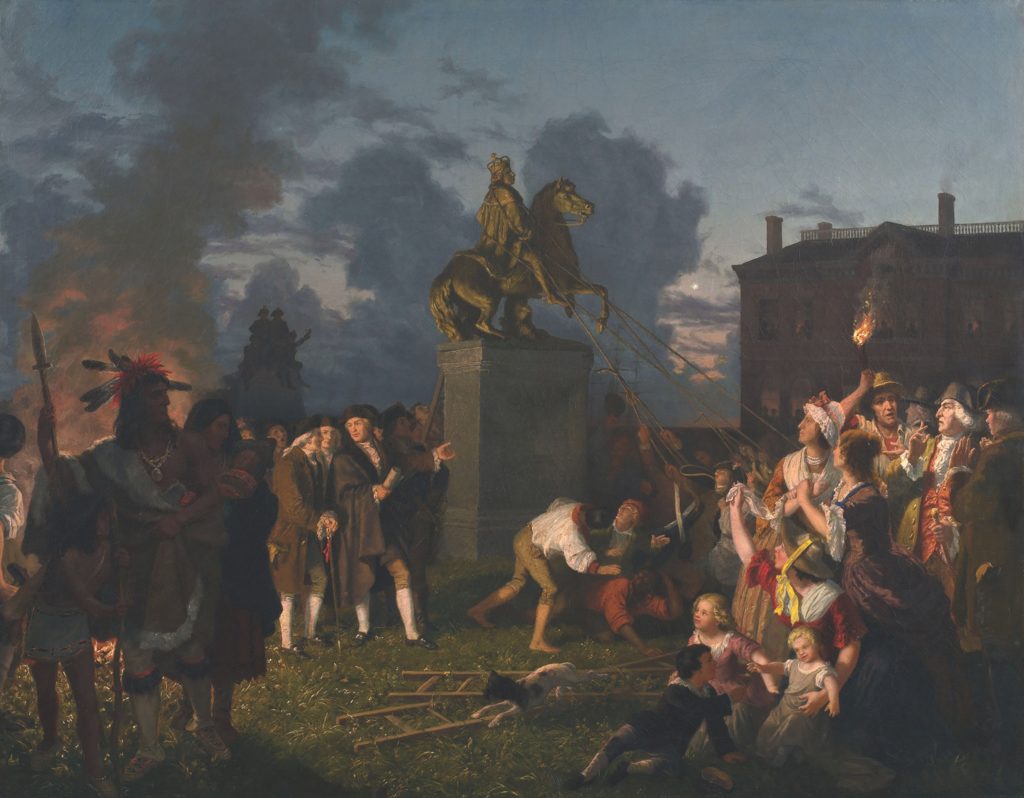
Franklin and Morris also instructed Deane to determine if, in the event the united colonies formed an independent state, France would acknowledge them as such and form a military or commercial alliance—or both. Ever since France had lost Canada and much of the American West to Britain through the Treaty of Paris in 1763, the French foreign ministry had watched the developing radical movement in the British colonies with keen interest.
Vergennes had already posted to London as an unofficial observer merchant Pierre-Augustin Caron de Beaumarchais, playwright of The Marriage of Figaro. At the home of John Wilkes, the radically pro-American lord mayor, Beaumarchais was introduced to Arthur Lee, younger brother of Richard Henry Lee, a delegate to Congress from Virginia. The younger Lee was studying law and acting as commercial agent for the Lee family’s extensive interests. He had also assisted Franklin’s colonial agencies.
Beaumarchais informed Lee that on June 10, the French government had approved a gift of one million livres to aid the American revolutionaries. Beaumarchais was to manage the fund by setting up a dummy mercantile house, Rodrigue Hortalez et Cie, to mask France’s participation. Under international law, openly supplying contraband weapons to the rebellious Americans was a clear violation of French neutrality.
With King Louis XVI’s personal approval, the French government adopted the pretext that it was high time to refit its weaponry. Declaring many of its arms and ships “outmoded,” it allowed designated merchants to remove munitions from royal arsenals for a nominal sum to aid the Americans.
As Congress adopted the Declaration of Independence on July 4, 1776, some 90 miles away, Washington’s inexperienced militia faced the largest fleet and most powerful army Britain had ever sent from its shores. Washington had the Declaration read aloud to his troops and ordered them back to their billets. Instead, many joined a mob surging through the streets. Reaching Bowling Green, at the tip of Manhattan, they vaulted the fence surrounding the 15-foot lead equestrian statue of King George III, looped ropes around the monument, and toppled it. One man sawed off the king’s head; the rest was carted off to Litchfield, Connecticut, where a small army of women converted it into 42,088 bullets.
He and Morris, Bingham wrote, had mastered “the art of uniting war and commerce.”
By December 1776, Deane was able to inform Congress that he had dispatched some 200,000 pounds of gunpowder and 80,000 pounds of saltpeter from France to Martinique and 100,000 pounds of gunpowder from Amsterdam to Saint Eustatius for transshipment to the American mainland on smaller American vessels. By the end of the year, congressional agents were operating openly in all the Dutch, Spanish, and French colonies in the West Indies and in European ports.
At every stop American merchants and their agents, among them Morris and Deane, were taking 5 percent of the sale price of the munitions for themselves. These wartime commissions would mount into the millions.
By December 1776 it had become clear that the Continental Congress needed to maintain a more formal diplomatic presence in France. After meeting secretly with a French agent in Philadelphia, the Committee on Secret Correspondence selected Franklin to join Deane in Paris. Arthur Lee was to cross the Channel from England to join them to form the first American diplomatic mission. Franklin took along his grandson, William Temple Franklin, as secretary, and his nephew, Jonathan Williams, to act as the mission’s commercial agent.
They joined Deane at Passy, a village overlooking Paris, taking up residence in the estate of Jaques-Donatien le Rey de Chaumont, a government contractor, and kinsman of France’s prime minister. Franklin would live there for the next nine years. Chaumont said he would charge no rent but that Congress could show its appreciation by giving him a suitable grant of land.
Congress had legalized privateering in March 1775, only three weeks after learning that the British planned a blockade of all American trade. It was an important move by a fledgling government with no navy and no means to collect taxes. Congress granted investors commissions to arm their ships—at their own expense—and to raise crews of seamen, who were assured shares in the proceeds of any enemy ship they captured intact. A captured ship was sailed to port and auctioned along with its cargo. Investors divided the booty with officers and crews according to a formula approved by Congress, reserving a 10 percent cut for the commander in chief to use for the needs of the army.
So profitable was privateering for all hands that the Continental Navy and the 11 state navies had difficulty recruiting crews. Many sailors deserted Continental ships, lured away by the prospect of a share of the loot.
To get around the enormous expense of building a sizable navy, Congress registered some 1,697 private vessels. Of these, 600 carried letters of marque that served as commissions from Congress. In addition, agents abroad such as Franklin and Deane commissioned some 300 private warships, bringing the total commerce-raiding vessels to 2,000. Fitted out, in all, with 18,000 guns—most captured from British ships—this mercantile armada transported contraband arms and goods from the Caribbean while hunting for lucrative prize British merchantmen. In little more than the first year of the war, according to the registry kept in Lloyd’s Coffee House in London, American privateers captured 733 British merchant vessels. By war’s end they would capture more than 500 vessels with cargoes collectively valued at an astonishing nearly $10 billion in today’s dollars.
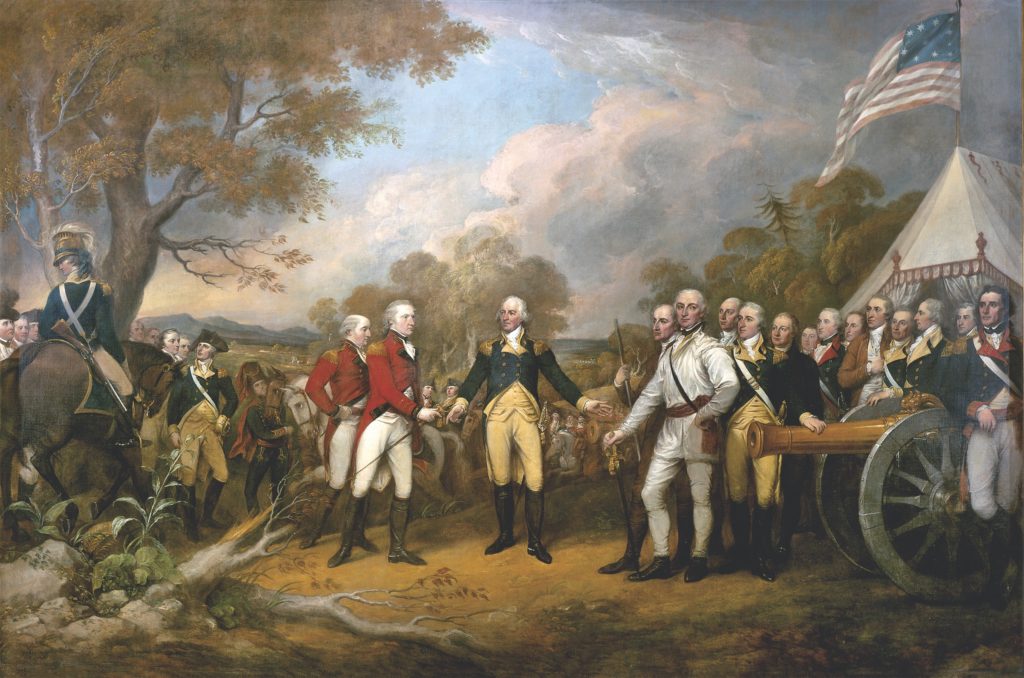
The proceeds would enrich several members of Congress, including Robert Morris. At first, Morris abjured personally investing in privateering. He had too many friends in England to take away any of their property, he explained. But as the fighting at sea intensified and the British took several of his merchant ships, he wrote to his partner, William Bingham, that “I conceive myself perfectly justifiable in the eyes of God and man to seek what I have lost from those that have plundered me.” Morris joined Bingham as a silent partner in commissioning the Retaliation, which captured 13 prizes on its maiden voyage. “My scruples about privateering are all done away,” he wrote to Bingham. Together, Morris and Bingham, in the junior partner’s words, mastered “the art of uniting war and commerce.”
In Philadelphia, Morris’s hauls from the captured ships were well known. When François Jean de Beauvoir, the marquis de Chastellux, visited the city, he reported that Morris was “so accustomed to the success of his privateers that when he is observed on a Sunday to be more serious than usual, the conclusion is that no prize has arrived in the preceding week.”
No one tallied Morris’s and Bingham’s profits, but Morris had enlisted all the members of his Secret Committee on Trade network, sending their ships to Europe and the Caribbean and taking shares in other privateers’ cruises.
In France, with Chaumont as his backer, Deane fitted out privateers and sold prizes, and in England he organized an international trading company with Chaumont, Morris, and Thomas Walpole. Charles Willing, Morris’s partner in Barbados, arranged transshipment of European goods to the American mainland. Morris’s associates in Philadelphia had agents in the West Indies and in New Orleans. In an early example of global capitalism, American merchants and their international network of agents broke the bonds of Britain’s ancient mercantile system.
France’s maritime ministry appointed Chaumont, Franklin’s landlord, to take the helm of the clandestine privateering operation, allowing the American agents to work without rivals. No prizes could be sold without his approval and then only on his terms. As purchasing agents for Congress, Chaumont and Jonathan Williams, Franklin’s nephew, bought goods captured by privateers and, as prize agents, sold the booty to their associates, including Morris. Franklin would later attest that some transactions reaped profits as high as 8,000 percent.
Franklin encouraged privateers to sell their captured ships in French ports, knowing that this was an act of illicit trade that violated French neutrality and infuriated the British. When British officials complained, France promised to crack down, but the flow of captured goods continued. Historian Peter Andreas explains that privateers offloaded goods onto French ships at sea and sold the ships they captured “just beyond the harbor, thus technically outside French waters.”
“England is extremely exasperated at the favor our armed vessels have met with here,” Franklin reported to Congress in September 1777. “To us, the French court wishes success to our cause, winks at the supplies we obtain here, privately affords us every essential aid, and goes on preparing for war.”
That France was considering dropping its mask of neutrality and openly forming an alliance with the American revolutionaries was such a carefully guarded secret that apparently even George Washington was unaware of it. As British armies attacked from Canada and the Chesapeake, he could find little that was redeeming in the operations of merchants like Robert Morris.
Indeed, Washington was coming to suspect Morris of “engrossing”—the morally questionable practice of buying vast amounts of wheat and other scarce supplies and speculating in them by holding onto them until prices rise. After a winter of near starvation for his army at Valley Forge, Washington wrote to his former aide-de-camp, Joseph Reed, a leading radical Pennsylvania politician, that he was inclined to bring “those murderers of our cause—the Monopolizers—forestallers—& engrossers—to condign punishment.” He bemoaned the failure of several states to “hunt them down as the pests of society, and the greatest enemies we have to the happiness of America.”
Washington came to detest what he called the eagerness of Morris and other merchants to profit from the war. Writing to his kinsman Brigadier General Andrew Lewis, Washington blamed “want of virtue,” which he “dreaded more than the whole force of Great Britain.”
“Certain I am, that, unless extortion, forestalling and other practices which have crept in, and become exceedingly prevalent and injurious to the common cause, can meet with proper checks, we must inevitably sink under such a load of accumulated oppression,” Washington wrote. “To make and extort money in every shape that can be devised, and at the same time to decry its value, seems to have become a mere business and an epidemical disease, calling for the interposition of every good man and body of men.”
In the summer of 1777, for the second time in less than a year, British expeditionary forces were sweeping south from Canada. Sir John Burgoyne had retaken Fort Ticonderoga, the munitions base of the American northern army, and was slowly marching south to link up with a British army expected to attack north from New York City.
In mid-July, as the American army retreated, Major General Philip Schuyler wrote to Washington of the bleak prospect of stopping the British, who had an army “flushed with victory, plentifully provided with provisions, cannon and every warlike store” while the American army “is weak in numbers, dispirited, naked, in a manner destitute of provisions, without camp equipage, with little ammunition and not a single cannon.”
Schuyler apparently was unaware that, all through that spring, a French fleet, eluding the British blockade by
appearing to sail for the Caribbean, was escorting eight supply ships bearing the fruits of Silas Deane’s clandestine dealings to deliver guns and ammunition, shoes, blankets and stockings, tents, and tools to the Continental Army.
Two of the French vessels, Amphitrite and Mercure, had arrived at Portsmouth, New Hampshire, their holds crammed with 20,000 muskets and 52 brass cannons, and convoys of oxen were dragging them over the Berkshires.
When Burgoyne crossed the Hudson, he found the Americans entrenched in elaborate defensive works and heavily armed with French artillery. By this point, most of the Americans’ arms at Saratoga were state-of-the-art French weapons, which enabled the Americans to fight the British invaders to a bloody standstill, with British casualties double the American toll.
After weeks of waiting, Burgoyne learned that he could expect no help from Sir William Howe, who had captured Philadelphia and decided to spend the winter there in comfort. Burgoyne, surrounded by Americans outnumbering him now three to one, his retreat to Canada cut off, surrendered. While the battles of Saratoga were won by soldiers, their victory would not have been possible without the timely arrival of the guns and ammunition obtained from the French.
The loss of an entire army at Saratoga proved to be the turning point of the Revolutionary War. The defeat of Burgoyne’s army was all that Benjamin Franklin in Paris needed to convince the French that, not only would the Americans stand and fight but, with the financial and military help of France, the United States could defeat Great Britain and secure its independence.
Willard Sterne Randall, an award-winning journalist and historian and professor emeritus of history at Champlain College, is the author of 15 books, including the forthcoming The Founders’ Fortunes: How Money Shaped the Birth of America (Dutton, 2022), from which this article is adapted.

